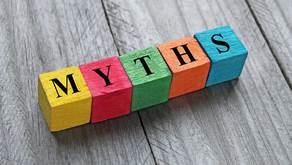Myths (and Realities) of a Reverse Mortgage
Even though a Home Equity Conversion Mortgage (HECM), more commonly known as a reverse mortgage, is a loan insured by the Federal Housing Administration (FHA), there are a lot of questions and misconceptions about reverse mortgages.
Put simply, a reverse mortgage enables seniors to convert equity into tax-free funds or monthly cash flow, eliminate payments on their current mortgage, or purchase a home without monthly mortgage payments. But here are some common myths - and the associated realities - which are commonly associated with a HECM:
#1
Myth: The bank owns the home.
Reality: The borrower will retain title and ownership of the home.¹
#2
Myth: The home must be free and clear of any existing mortgage.
Reality: A reverse mortgage is meant to pay off an existing mortgage and eliminate monthly mortgage payments.²
#3
Myth: The borrower needs to pay taxes on reverse mortgage funds.
Reality: Reverse mortgage loan proceeds are tax-free as it is not considered income.²
#4
Myth: The borrower is restricted on how to use the proceeds.
Reality: Once any existing mortgage or lien has been paid off, the net loan proceeds can be used for any reason.
#5
Myth: Only low-income people need reverse mortgages.
Reality: Many affluent senior borrowers are using reverse mortgage loans as part of their financial and estate planning.³
Index:
¹ Like any loan, defaulting on the terms of the loan puts the borrower at risk of foreclosure.
² The borrower must still live in the home as your primary residence, continue to pay required property taxes, homeowners insurance, and maintain the home according to FHA requirements.
³ Consult a tax or financial advisor.
Contact Us
For more information about whether or not a HECM is right for you, contact our Reverse Mortgage Advisor:
 |
|||
| Janell Holden |







